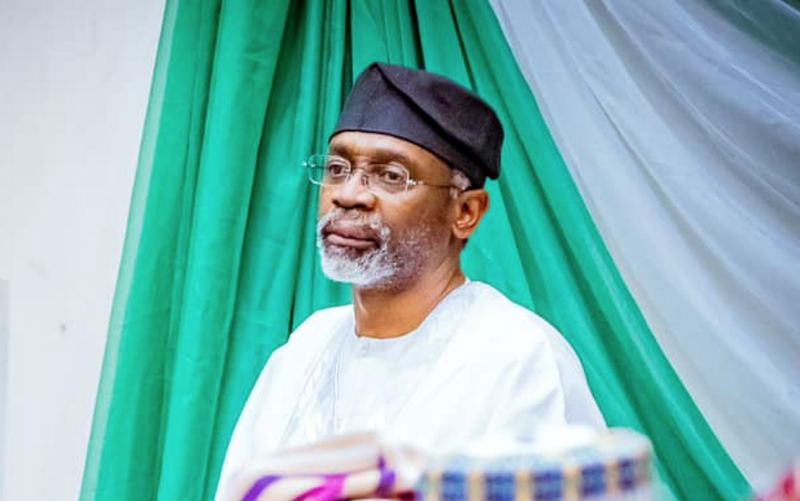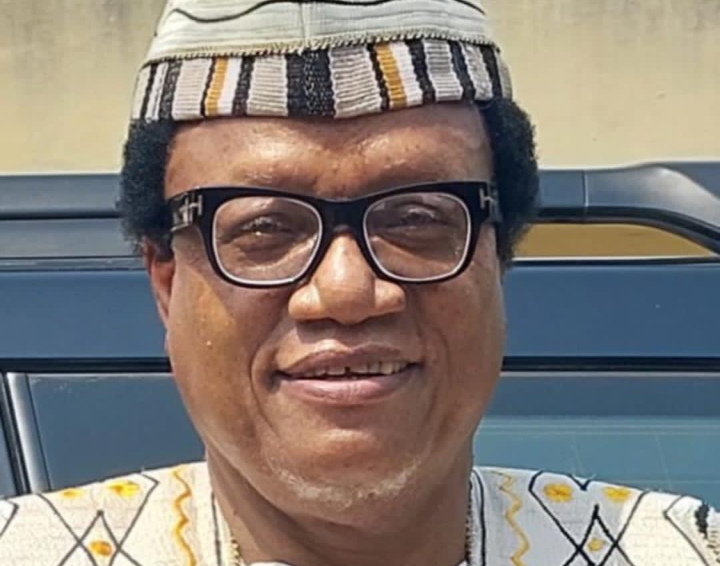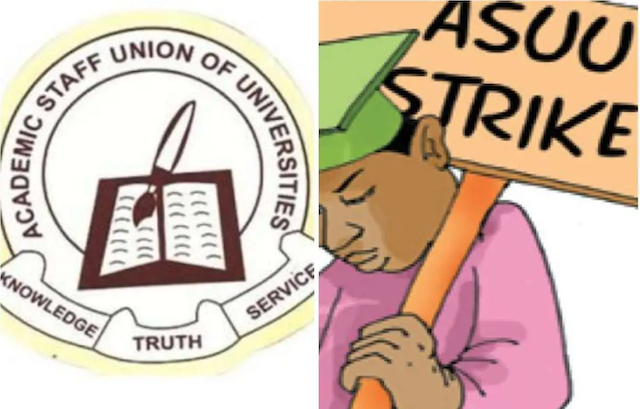After eight months’ strike, one of the longest in the country’s history, university teachers finally returned, at gunpoint, to the classrooms on Monday.
It was the 16th time university teachers would be striking in 23 years. Frustrated parents and distraught students just couldn’t wait to hear that the strike had been suspended and schools reopened.
It does appear, however, that if all we’re interested in is to tick the box, it won’t be long before we’re back to square one. There is a clear and present danger that we’re kicking the can, with the teachers, down the road. And this bad sign, which was always there even while teachers were being bullied to return to class, was full blown on the first day of return.
This may sound like Greek, but Good Samaritan and House Speaker Femi Gbajabiamila, understands what I’m talking about. He was among the last ranking public-spirited individuals to intervene to end the strike.
Parties familiar with the dispute told me on Monday that up till then, the two sticking points were 1) an acceptable IPPIS, the integrated payroll system which manages university teachers’ pay and allowances and 2) the no-work-no-pay rule which, according to the law, meant potentially that the teachers would not be paid for the eight months they were on strike.
The Speaker assured them, however, that there would be “a political solution”, meaning that he had secured the understanding of the government of President Muhammadu Buhari to 1) allow a more flexible and competitive payroll system which, for example, would capture all allowances and accommodate payments by host schools during sabbaticals and 2) pay them in two tranches for the period of the strike.
In case the Speaker is still available, however, he might be interested to know that the ASUU-FG fire hasn’t been extinguished quite yet. The understanding collapsed even before the teachers reached the classrooms on Monday.
On Day One of resumption at the University of Lagos teachers there and elsewhere told me they had been informed there was no going back on the full implementation of the vexatious payroll system and also that the no-work-no-pay rule still stands.
In order words, while we felt a sense of relief, teachers returned to the classroom to confront the same fundamental problem that has dogged the agreement in the last two decades: bad faith. Teachers are, once again, left with the short end of the stick.
Some would say deservedly. Half way through the strike voices of dissent were raising doubts about the usefulness of strikes and questioning how much effort the union itself was making to improve university funding. Why indulge the insanity of frequent strikes when everyone knows that this government treats serious issues as a sport?
At its wit’s end, ASUU yielded to being kicked down the road with the can. At which point triumphant government officials were only too pleased to bury the hatchet right in the wounded back of the union. It’s no use going over the long list of the union’s grievances, which has often been summarised as poor funding for education.
It might, however, be useful to see how the pay-slip of an associate professor, who has spent nearly 20 years in a first-rank federal university, tells the story.
This professor earns N436,545 monthly. Of this amount, total deductions – including payments for NHF for which no forms were completed, and inexplicable sundry taxes – account for 205k. The professor’s net monthly salary is about 232k; that is, roughly N8,000 daily for teaching, research and community service!
We can argue that in a country of generally low wages and poor productivity, misery is inevitably widespread. Yet, I think most might agree that if we want a truly great, secure and prosperous future, it is futile to pay peanuts and not expect monkeys in our classrooms. The question, however, is how do we deliver more value to the system.
As long as course content and research are largely irrelevant to the needs of industry and society and delivery and feedback methods are even more irrelevant, schools will continue to find it difficult to attract donor funds, grants and endowments, which are the mainstay of universities elsewhere.
Teachers will neither earn more respect nor money by behaving like shopfloor workers or comparing themselves with politicians sworn to a lifestyle of crookedness. The outrageous allowances that politicians in the National Assembly currently earn are proceeds of extortion. They are not a reflection of value and are therefore unsustainable.
Schools will only get better by prioritising curriculum and research that focus on problem-solving. They must also encourage the academic culture of merit, curiosity and debate. Unfortunately, a number of academics have lost their way. Not a few are worse than the superstitious herd in our mushrooming faith centres.
To fix the system students have to pay more. A statement by the Lagos State Commissioner for Education, Folashade Adefisayo, in September that the ratio of public to private schools in Lagos was 1:22 could be an indication that residents in the state, for example, may be willing to pay more for university education.
The average tuition fees in the more stable private universities are more than twice those in state universities, especially in Southern states. And yet, in the more-in-demand federal universities, a student studying Economics, for example, will pay about N45,000 per session, while his counterpart studying the same course in a state university pays roughly 150 percent more!
It also doesn’t make sense that teachers in state universities paid by state governments would join teachers at the federal level to strike when they have no pay dispute with the state. This nonsense of state teachers taking Panadol for the headache of federal teachers must stop.
Long established systems are politically difficult to dismantle, but like has been the case with state policing, it won’t be long before economic circumstances teach us a lesson.
The 43 federal universities should be dismantled, perhaps leaving only two per zone, with one in each zone focusing on Science, Technology, Engineering and Mathematics (STEM). The remaining 31 can be taken up either by state governments that wish to do so, or they are organised into autonomous units. Of course, not all of them will survive.
A system of sponsorships, scholarships and loans should be reestablished.
The reason for proposing two universities instead of one is that if only one university is established the system will gradually and eventually crowd out STEM, because our people seem to have difficulty coping with the rigour of science.
It’s true that useless Federal bureaucracies – TETFUND, PTDF – are fattening themselves at the expense of the entire system. Yet, we have seen from the way the universities manage funds even from their own internal programmes, that unless the system becomes more competitive, intentional, transparent and accountable, funds or grants, even if they come, would be wasted.
According to a Central Bank report in May, Nigerians paid about $11.6 billion as fees in foreign universities in the last three years, including schools in countries whose citizens used to come here for higher education. It’s not enough to wring our hands in lament. Already, the seed for the next strike has been sown by the government’s malicious compliance with its own agreement from the first day – a trend that we have seen in the last over two decades.
Perhaps the only thing that will save us from this famished road sooner than later is for teachers, parents, students and the government to admit that the system is broken. It will cost everyone something more than just kicking the can down the road to fix it.
Ishiekwene is Editor-In-Chief of LEADERSHIP






